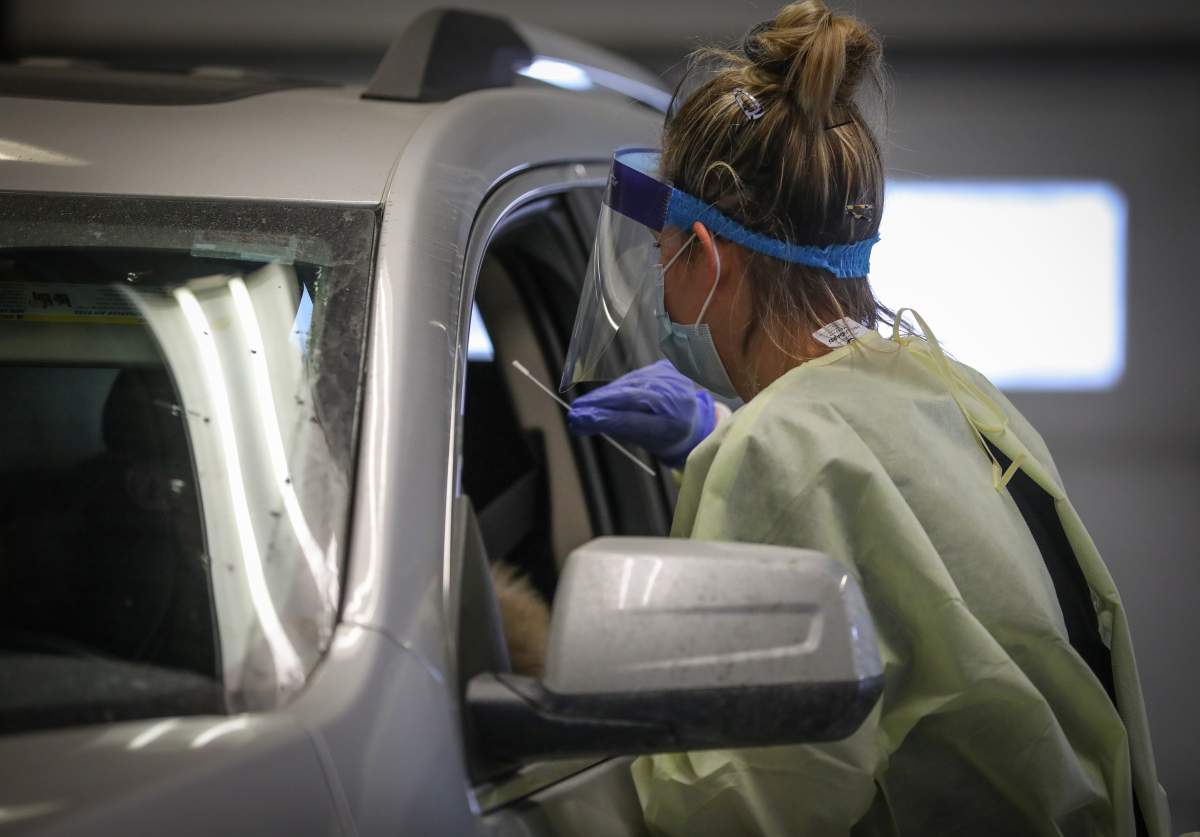Could drive-thru testing make an impact on Canada’s coronavirus crisis?

Epidemiologist Stephen Hoption Cann told 680 CJOB the practice — which has been used with great success in South Korea and has since spread to other countries — is potentially an effective way to keep patients who test positive for COVID-19 out of Canadian emergency rooms.
“The last thing you want to do is have people who potentially have the coronavirus filling up your emergency rooms and potentially contaminating sick people who don’t have it,” Hoption Cann said.
Hoption Cann said the premise of the drive-thru test is that a patient with symptoms could drive through a specific location, where a person in medical garb would come out and swab their mouth and nose.
The patient then drives off, and if they test positive, they get a phone call. If they’re negative, they get a text.
“You’re lowering your chances of spreading the disease.”

In addition to helping individual patients on a case-by-case basis, he said, it’s a useful way to obtain important stats about the disease’s spread.

Get weekly health news
“Public health (in South Korea) is putting out some limited demographic information and travel history information and companies are developing apps that are using this information.
“You can see people in your city who have been diagnosed with it and where they are … to help keep people from mixing with those who have tested positive.”
The drive-thru testing stations have expanded from South Korea into the U.K., the U.S., and even in Canada — with Edmonton and Calgary adding drive-in zones, which are accessible only to patients who have a referral.
“We aren’t making the addresses available publicly, since they are referral-only sites (no walk-ins) and we don’t want to overwhelm the sites with people showing up asking for a test,” said Alberta Health Services spokesperson Marni Kuhlmann in an email to Global News.
Hoption Cann said while the option won’t defeat the virus on its own, it could at least prevent potentially infected people from spreading the coronavirus with other members of the public — an advantage it has over scheduled doctor’s appointments.
“If you can’t get in to see your GP that day and you have to book around your work schedule, you might have a delay when you get tested and might spread it to other people,” he said.






Comments